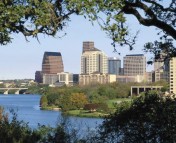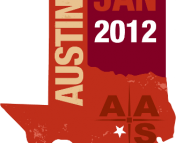The Monday morning workshop “Careers 101” at the AAS Austin meeting provided a room full of graduate students with several important aspects to ponder when considering our potential career paths, as well as some action advice to follow to develop our careers in the direction that we choose. I blogged a summary of the workshop here, and promised to follow up with some more specific details. I invite comments on this post, if you have any suggestions or advice you would like to contribute related to astronomy career paths.
The workshop was organized around a panel, introduced and moderated by Alaina Levine (founder of Quantum Success Solutions).
Panelists:
Dawn Gelino (NASA Exoplanet Science Institute)
Adam Kraus (Hubble Postdoctoral Fellow)
Edward Ajhar (NSF Program Officer)
Anita Cochran (Assistant Director of McDonald Observatory)
Joe Bernstein (Argonne National Lab)
Advice (in no particular order):
1. Network. Establish your brand, realizing that at every stage of your career you can be the world’s expert on a niche subject at some level. Find confidence in this.
2. Make yourself stand out. If you are in a collaboration (especially if it is a large collaboration), take ownership of some aspect of the science.
3. Prove yourself by earning your own grants and fellowships. Writing proposals is good experience, even as a grad student or postdoc.
4. Think about what will make you happy. Is an R1 research career, tenure track, what you would enjoy doing? Ask others, do some soul searching. Keep in mind that only 1 in 4 of us will get a tenure track position. Whatever you decide, you CAN change your mind later, but you should start on your path as soon as you can.
5. Select your mentors (you should have many) wisely and carefully. A mentor is someone who has access to the room, people, and resources to which you do not have access. He/she can help you get to the next step in your career.
5b. Consider that not every PI or primary academic adviser knows how to be a good mentor, and if this is the case for you, seek out a “third party” mentor (someone who is not directly your academic adviser, possibly even in another field). Are you interested in someone’s science, or think you connect on a personal level? Pursue a mentor relationship.
6. Find someone who has achieved the next level of their career. You will meet people in your department, at colloquiums and meetings. Ask them about themselves, and collect as many career narratives as you can.
7. Finally, some action advice:
7a. Create a “skill inventory matrix”, a private document that you will use to populate your CV. Include in this: Technical skills (astronomy, engineering, programming), business skills (accounting, Human resources, risk management), soft skills (oral and written communication, leadership, etc), personal characteristics. Most important, ask yourself:throughout your career, what did you love and what did you hate?
7b. How to strengthen your applications:
- Tailor your application to the particular job.
- Keep your personal statement concise. Note that you do not need to write that you are a rock climber, or even that you know 15 computer languages. It is assumed that you are qualified for the job.
- It is okay to ask your letter writers if they can write a strong letter for you. In some cases, you can note some key points that you would like for them to emphasize. Your letter writers will appreciate the guidance.
- Consider asking a letter writer to include in the letter a comment on your personal situation (i.e. “she has done a great job publishing, effectively balancing a professional career and a family”).
- Follow directions on applications. This seems simple and obvious, but this is a quick way for your application to be disregarded.



